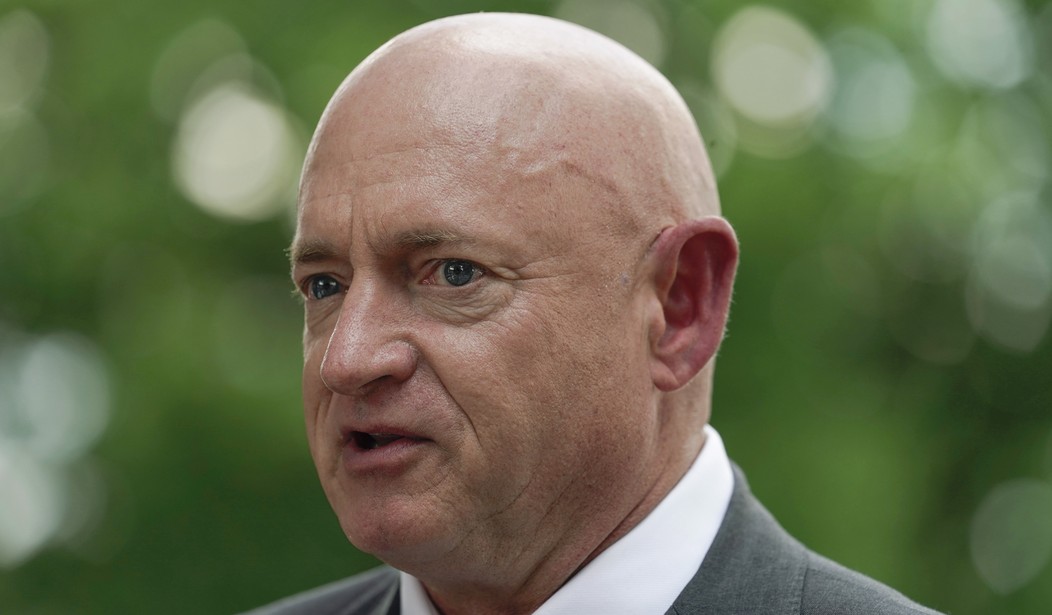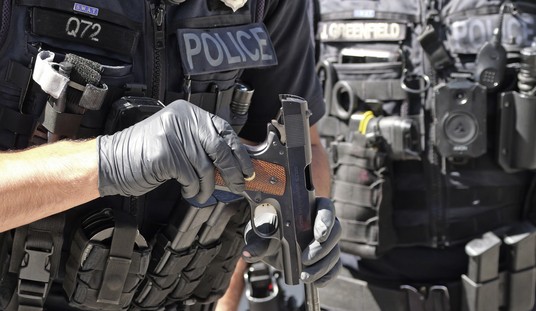There are several considerations at play when it comes to who Kamala Harris will name as her running mate, but polling might be the singlemost important factor. Democrats are obsessed with voter surveys, to the point that it was supposedly private polling that pushed Joe Biden to drop out as the Democrats' named candidate, not the dozens of members of Congress and high-dollar donors who had encouraged him to quit the race.
So what does the polling tell us about who Harris might tap as her veep pick? We're starting to see the results of polls conducted entirely after Biden dropped out, and some of the state-level surveys show a slight uptick in support for Harris's campaign compared to Biden.
The Hill/Emerson released several polls on Thursday, all but one of which had Trump in the lead in battleground states. But Harris has made small gains in Georgia (Trump +2), Michigan (Trump +1), Pennsylvania (Trump +2), Wisconsin (tied), and Arizona (Trump +5).
Most of the names on Harris's shortlist are connected to one of these battleground states: Pennsylvania Gov. Josh Shapiro, Michigan Gov. Gretchen Whitmer, and Sen. Mark Kelly of Arizona among them. The Hill's latest round of polling didn't include North Carolina, but that's very much a swing state and Gov. Roy Cooper is also among the potential VP picks, along with Kentucky Gov. Andy Beshear.
If Harris picks a running mate on the basis of Electoral College math, I'd say Mark Kelly is probably at the top of her list at the moment, simply because that's where she needs the most help. Pennsylvania and Michigan are already closely contested, but Harris is still struggling in Arizona, just as Biden was before he ignominiously ended his campaign, largely because of their shared incompetence on illegal immigration and border security.
So how much help would Kelly be? The media's been fawning over the possibility of a former astronaut and gun control advocate with a compelling personal story joining the ticket, but its worth noting that Kelly hardly ran away with his Senate elections. He first won office in 2020, in the special election that took place after John McCain's death. Kelly received 51.16% of the vote against Martha McSally. Two years later Kelly ran for a full six-year term, and barely bettered his earlier performance by getting 51.39% of the vote against Blake Masters.
Harris would probably enjoy a modest boost in Arizona with Kelly on the ticket, but his 51% of the vote is hardly evidence of any kind of eye-poppiing popularity that would help Harris's underwater approval rating. If 51% of voters don't like you, you probably need to pick someone who could get more than 51.. excuse me, 51.39% of the vote the last time he ran for election if you're expecting to pull yourself up by his bootstraps.
Even if Harris decides to go with her gut, not the polls, Kelly could still end up on the ticket. Kelly was quick to endorse her campaign, and has already come out in favor of a labor bill favored by unions that he'd previously declined to co-sponsor; a pretty transparent move meant to show his availability if Harris comes calling. The two "know each other very well", according to CNN correspondent Jamie Gangel, and with Harris signaling that gun control will be a major component of her campaign, having the co-founder of Giffords would give her a surrogate who's (frankly) a more effective gun control advocate than she is.
Like I said, there are a lot of considerations at play here. Harris could decide to go with Roy Cooper, who was elected governor of North Carolina (with a whopping 51.52% of the vote) in 2020, even as Republicans gained four seats in the state House. Cooper is now term-limited, and if Harris/Cooper wins he wouldn't have to leave office until he assumed his new role. But when Roy Cooper leaves the state, Republican Lt. Gov. (and 2024 gubernatorial candidate) Mark Robinson is in charge, which complicates things for Cooper.
On this week's VIP Gold live chat, Hot Air's Ed Morrissey said Kentucky Gov. Andy Beshear was his prediction for Harris's running mate. Beshear actually got 52% of the vote when he ran for re-election last year, which is, admittedly, no mean feat in a state with a Republican supermajority in both the House and the Senate. But if is Harris looking to soften her hard-left progressivism with a moderate, Kelly could probably serve the same purpose, while adding a much more compelling personal narrative to the campaign than a political nepo baby from a state that's going to go for Trump by double-digits in November.
In fact, the biggest drawback for Kelly, at least from Harris' standpoint, is that he could easily overshadow her. It's bad enough that Harris was essentially anointed as the candidate without any competition, but she's also the 2020 candidate who couldn't even make it to the Iowa caucuses. Kamala Harris isn't a great politician. Mark Kelly isn't exactly the most compelling stump speaker either, but his accomplishments dwarf Harris's. She's been a part of the California Democrat machine for most of her life. Mark Kelly flew dozens of combat missions during Operation Desert Storm before strapping himself to a rocket and going to space. If Harris does choose Kelly as her nominee, I think a healthy number of voters are going to end wondering why he's not at the top of the ticket instead.
Despite that, my own prediction during the live chat was that Harris will end up picking Kelly, with Josh Shapiro a fairly close second choice. He's one of the best surrogates around on one of her major campaign issues. The liberal media loves him, assuring her of a long honeymoon period with Election Day just over 100 days away. And in theory, it helps her in the swing state of Arizona. If it weren't for Harris's ego, I'd say Kelly would have the nomination sewed up already.









